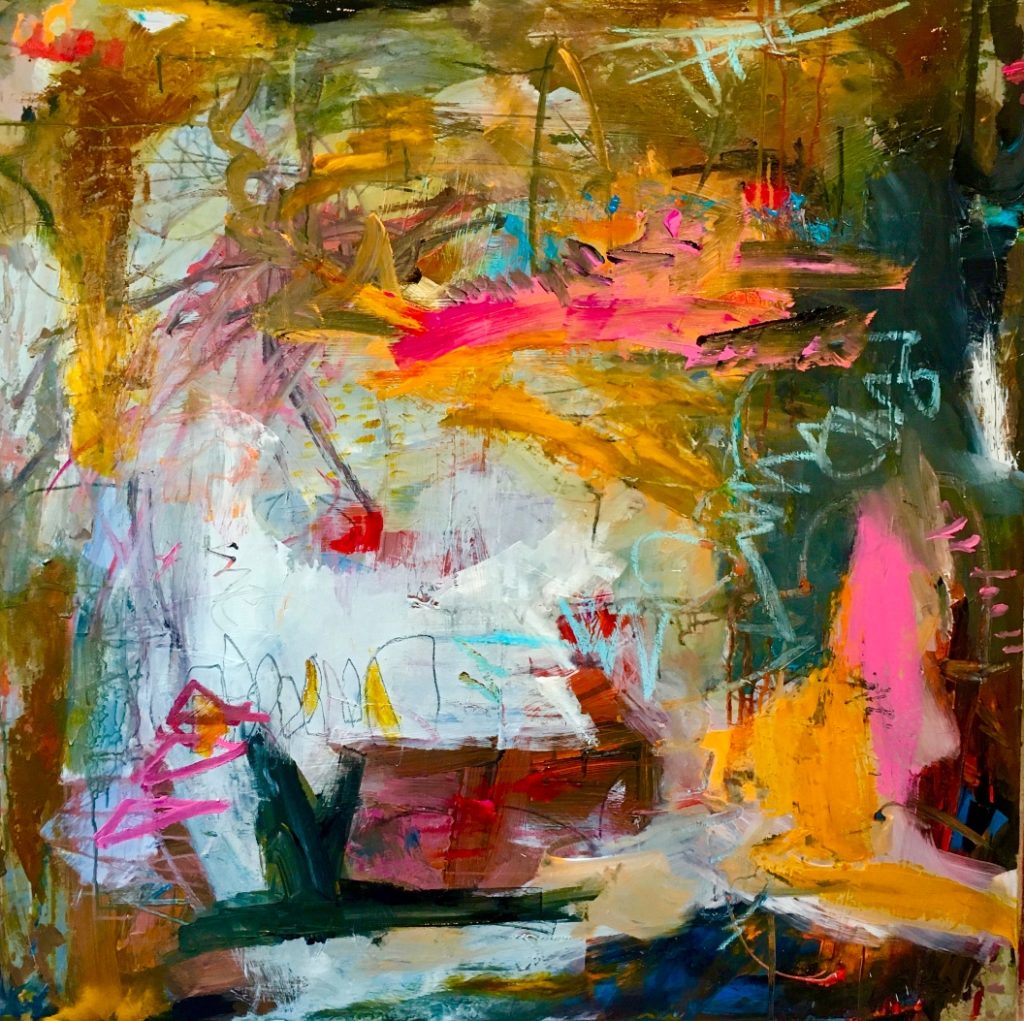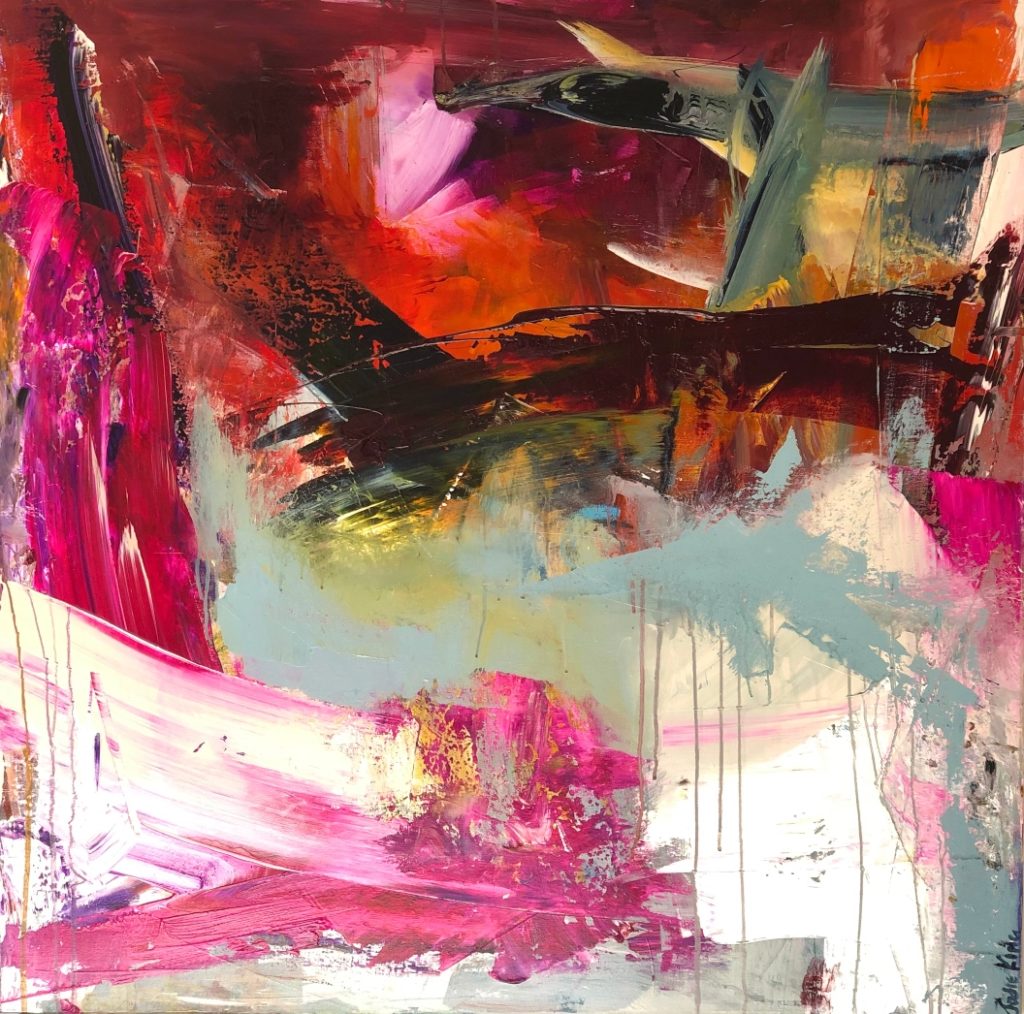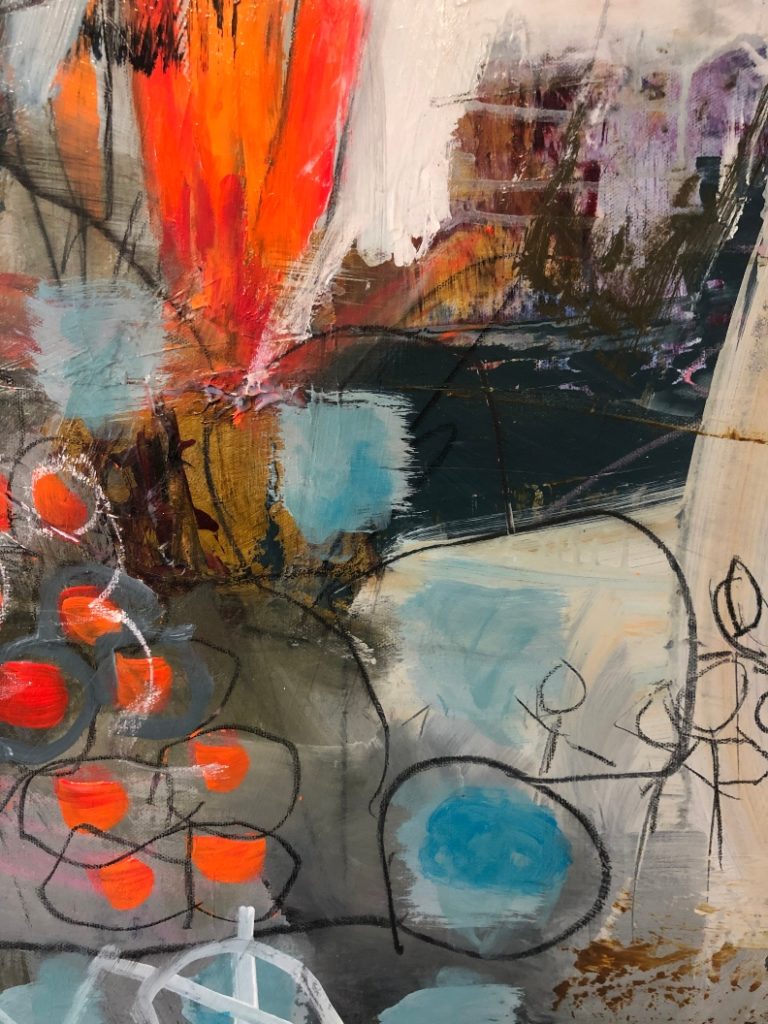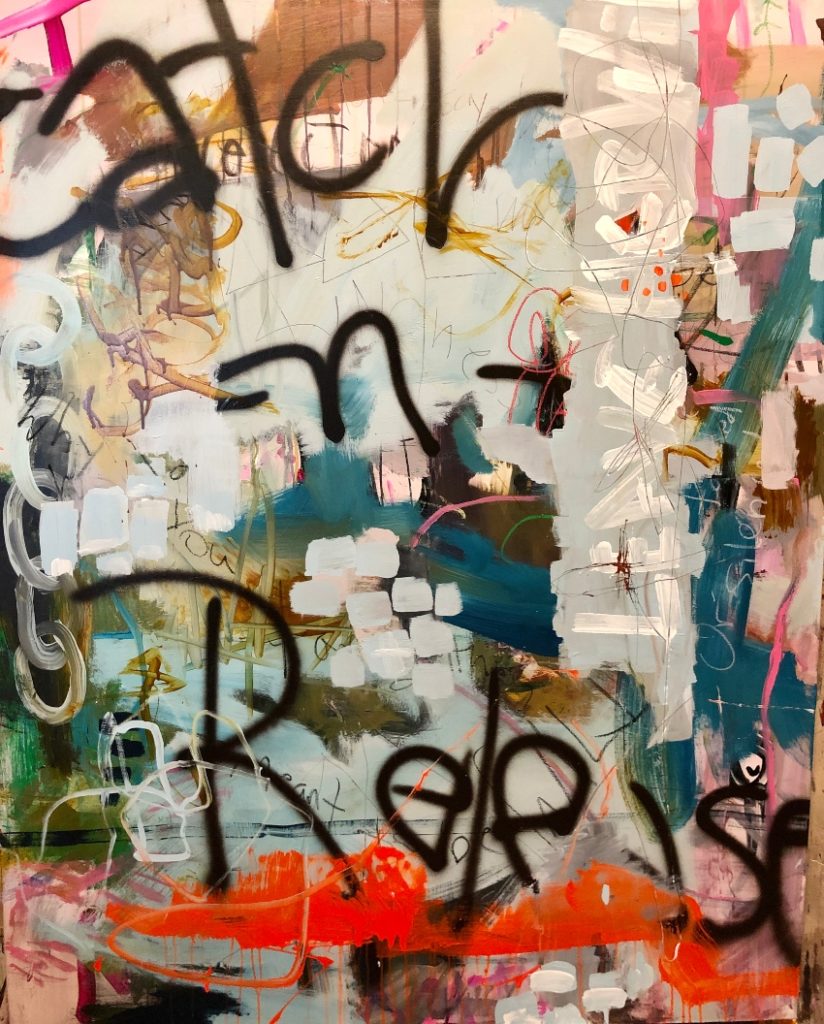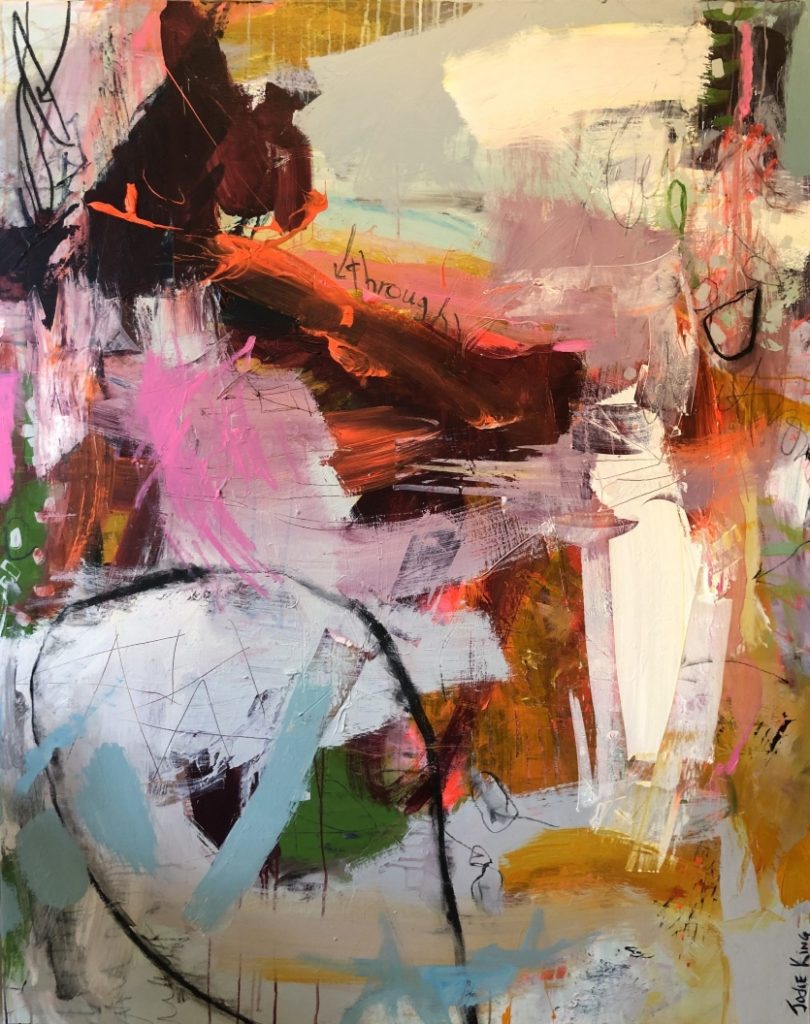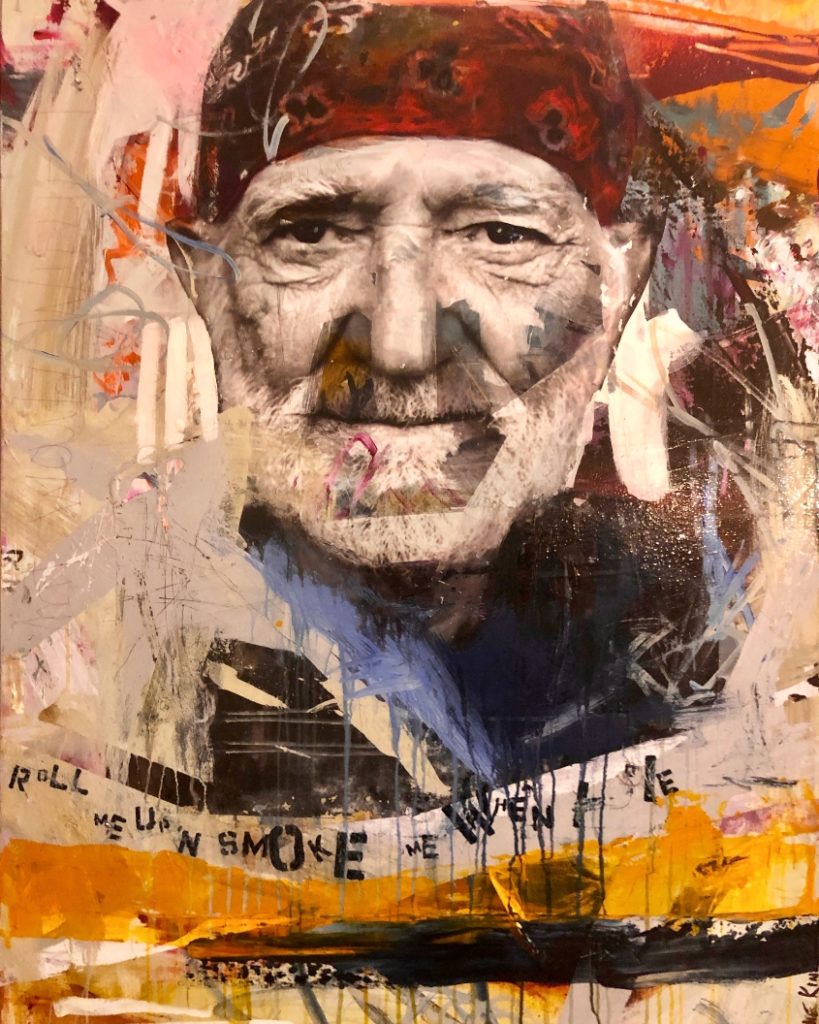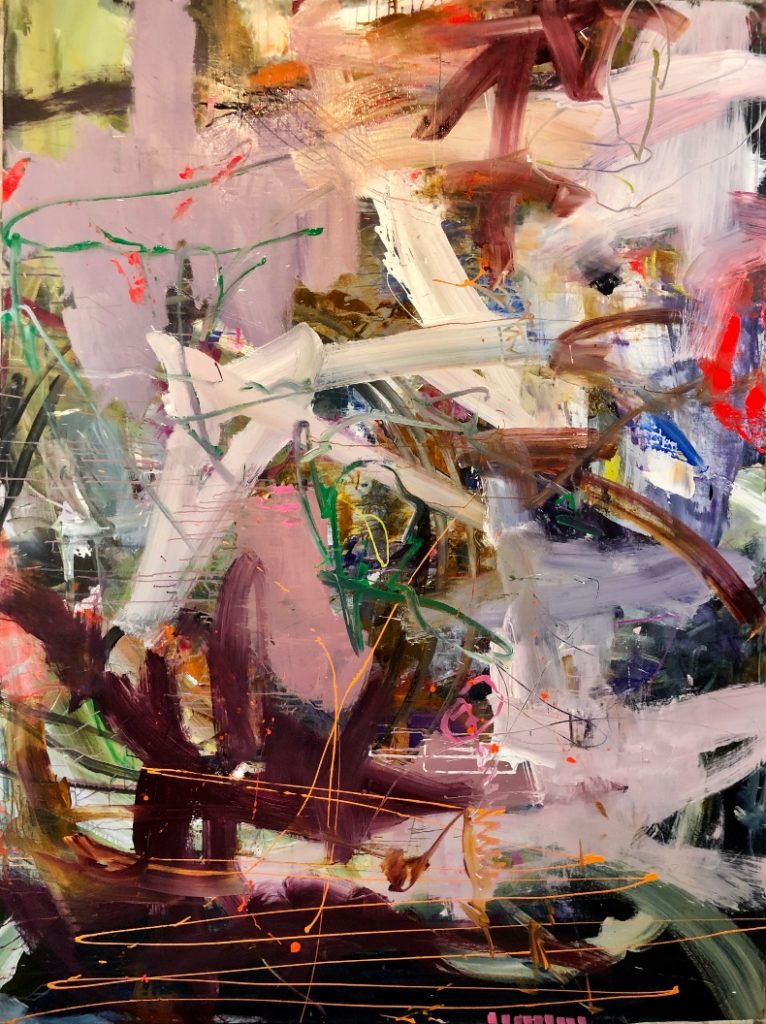Abstract-expressionist painter Jodie King finds herself in the healing power of art.
By Madelyn Geyer Photo of Jodie King by Bethany Brewster, Photos of art courtesy of Jodie King Media
Jodie King chooses Zoom over a phone call, sitting in a luminous studio surrounded by her work, wearing thick black frames and a shirt cheekily stained with paint. She and her abstract-expressionist paintings are one in the same: effervescent, brutally honest and free.
Most New Year’s resolutions don’t make it past Jan. 10. King beat those odds. At 35 years old, sitting with an artist friend at a ranch, she expressed a desire to paint…despite having never attended art school or even painted before. He encouraged her without hesitation, and she began painting. “I think [the desire to paint]was because I had young kids at home at the time,” King says. “Had two children, and they were just real demanding. I needed something to remember [that]I am a whole person just by myself.”
A Happy Accident
King’s professional art career arrived rather accidentally on a Christmas home tour of her 1914 bungalow. “I was trying to clean up, so I started hanging some of the paintings. That’s when people started coming in and wanting to know who the artist was.” King was shocked but ended up selling paintings that day, which then spurred her to sell more at a local store.
Becoming a professional painter felt like an insidious invasion of imposter syndrome; every success is an accident and you’re not actually good at what you do. The self-taught King had the emotional currency to make resonant art but needed a more thorough knowledge of values, composition and cohesive colors. She purchased art books and became a student of the decidedly unromantic-yet-empowering process. “Listen,” she begins, “you can turn yourself inside out and paint, and it just looks like a mess. To have the skills to make the mess palatable and something that you would be proud to hang on your walls, that’s going to a whole different level.”
Losing Her Identity
King emanates the warmth and bold straightforwardness of a feisty friend who gives honesty and encouragement freely. “It’s that honesty [that]resonates with people, and that honesty allows other people to feel the same and to honor their own story,” she says. To experience liberation, one must first be chained. Preaching the healing power of art is now King’s mission as she understands the wandering pain of losing her identity.
“I got married in 2008 and moved to Houston,” King remembers. “It was an environment that I really didn’t fit in, but I tried to fit in. I was newly married in a new town, with no friends except my husband. Raising five children under the age of eighteen. I lost myself in that world. I ended up needing to leave that marriage for a number of reasons, but the moral of the story is I left a man and a family that I loved to protect my two daughters. All of a sudden, I was 50 years old and alone with the exception of my daughters and my sister.”
Painting never completely vanished, but it was barely a whisper compared to the shout of parenting and constantly putting others before herself. “I gave and gave in the hopes that I would receive” she admits. “But you can’t give from that place. [Painting] helped me return to who I am, to my voice.”
“Thanks for Finding Us.”
King encourages her students to put their mental health first, empower themselves and find their joy again. “We can’t give from an empty cup,” she insists. “The social good has to start with our own mental health. If we can tap into our own creativity and experience, and then share that experience with other people, we can heal ourselves. I can teach this to others; then they help themselves. That to me is the best good that I can offer people as an artist, instructor and champion.”
Healing comes in all forms. One 70-year-old woman felt so inspired after King’s class, she went out and did what she always wanted to do: get a tattoo. “It was a profound act of liberation.” King beams. Another woman, now selling her own paintings successfully, contributes what she learned in the class to “sharing her story of what she’s been through and telling that in her paintings. She’s a lighthouse now for other people.”
Acknowledging the pain our younger selves felt sets us free. King gets choked up as she reflects on what her younger self would think. Coming from a troubled, chaotic childhood, King says painting helped her feel seen. “This is really the first time that I feel like little Jodie and big Jodie are both on the same page. She’s free. She would say, ‘I’ve been waiting. Thanks for finding us.’”


